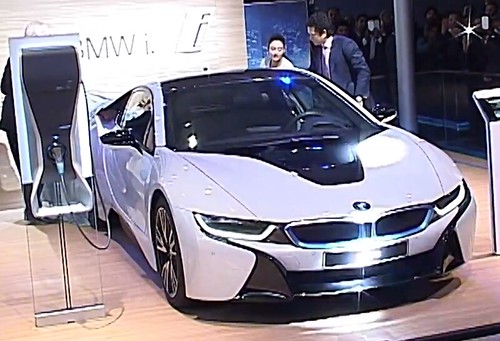
1. **What type of car should I look for right now?**: The ever-evolving car buying landscape means it’s vital to stay informed about which vehicles suit your needs and budget best. Whether you lean towards an SUV, a sedan, or a truck, consider factors like reliability, market demand, and inventory levels to make the best choice. Brands such as Kia and Chevrolet are known for their dependability, while luxury options like BMW can come with a heftier price tag. By remaining flexible and conducting a little research on current market trends, you can save significantly on your final purchase price.

2. **What’s going on with new car prices this year?**: Understanding the current pricing trends is crucial before walking into a dealership, especially post-pandemic when car prices have seen substantial fluctuations. Currently, the average transaction price for new cars is around $48,763, making it essential to be aware of these numbers to identify good deals versus overpriced options. Additionally, knowing which models align with your budget will give you a clearer path during your search, as prices can vary widely across different makes and models.

3. **How long will I have to wait to get my car?**: In today’s car buying market, patience is indeed a virtue. If you’re set on a specific model with sought-after features, anticipate possible wait times that could stretch up to six months due to supply chain adjustments. Many automakers have shifted their strategies to meet consumer demands post-pandemic, leading to longer delivery windows for ordered vehicles. Being aware of these potential delays in advance helps you manage your expectations and plan accordingly for your upcoming purchase.

4. **Should I be worried about the chip shortage?**: The automotive industry has faced significant challenges due to the global chip shortage. While the situation is improving, it’s still essential to discuss this with your dealer. Understanding how this shortage might impact vehicle availability or delays ensures you’re making an informed decision.

5. **What else is going on with inventory?**: The landscape of car inventory has changed dramatically. Many automakers have shifted their focus to more profitable luxury vehicles, which might leave entry-level buyers with fewer options. When discussing with your dealer, inquire about current inventory levels to get a sense of what you might expect to find on the lot.

6. **What incentives or other offers are available right now?**: Incentives have historically been low but are starting to make a comeback. Ask your dealer about any promotions or financing offers that could save you money. Incentives can vary based on the type of vehicle, and it’s always wise to ask if you qualify for any special deals that can help reduce your overall costs.

7. **What about interest rates and financing?**: As interest rates fluctuate, it’s essential to understand your financing options. The role of a dealer extends beyond selling you a vehicle—good dealers can help you navigate various financing options to find the best possible interest rates available. This can save you substantial amounts over the life of your loan, making it vital to discuss financing from the get-go.

4. **Does the used car market have anything I’d be interested in?**: For those contemplating a used vehicle, it’s essential to recognize that market dynamics have changed significantly in light of recent economic shifts. The availability of low-mileage used cars has tightened, and pricing can be unpredictable, which makes this avenue worth exploring. Used cars often present excellent value, especially in the current market, so don’t hesitate to investigate this option to find a reliable vehicle that fits your needs.

9. **Should I do a trade-in?**: If you have a vehicle to trade in, it’s worth considering how this will factor into your purchase. While trade-in values had peaked at record highs during the pandemic, they are currently adjusting. Understanding the value of your trade-in can provide additional leverage in negotiations, so don’t hesitate to ask your dealer what they can offer.

10. **What are the dealership’s return policies?**: It’s crucial to understand how flexible the dealership is regarding returns. In the event you find yourself unsatisfied with your purchase, knowledge of the dealership’s return policy can save you from potential headaches. Many dealerships might offer a limited return period, allowing you to test drive the car longer before committing fully. Thus, asking about this upfront gives you peace of mind and an opportunity to reconsider if the car doesn’t meet your expectations after a few days.

5. **Are there any dealer fees I should be aware of?**: While negotiating the vehicle’s price, keep a sharp eye on additional dealer fees that can quickly add up and catch you off guard. These fees might include document preparation, dealer service charges, or unnecessary add-ons, which can inflate your final cost. Therefore, it’s prudent to request a detailed breakdown of all potential fees linked to your purchase, ensuring you have a clear understanding of the total expenses to avoid any unwelcome surprises at closing.

6. **Can I see the vehicle history report?**: If a used car is on your radar, requesting a vehicle history report is absolutely crucial. This report reveals important details about the car’s past, including any accidents, flood damage, and previous ownership, helping you make an informed decision. Many reputable dealerships provide this report for free, so don’t hesitate to ask for it. Knowing the vehicle’s history can significantly impact your purchasing choice, ensuring you avoid cars with hidden issues that could lead to future headaches.

7. **What is the fuel efficiency of this vehicle?**: Fuel efficiency is a key factor to consider when selecting a car, especially if you’ll be driving it frequently. Understanding the miles per gallon (MPG) a vehicle achieves will help you predict long-term ownership costs. Be sure to inquire about the vehicle’s fuel efficiency ratings from the dealer, and reflect on how these figures fit into your overall budget. Additionally, knowing the type of fuel required can further influence your total cost of ownership.

14. **What is the warranty coverage?**: Knowing what kind of warranty coverage is available can provide significant peace of mind. Many new cars come with comprehensive warranties, while used cars may have limited coverage or none at all. Ask about the warranty period, what it includes, and whether there are extended warranty options available. This information can be crucial in protecting you from unexpected repair costs down the line.

15. **Can I take the car for an inspection?**: If you’re considering purchasing a used vehicle, you should always ask if you can have it inspected by a trusted mechanic. A thorough inspection can reveal any underlying problems that may not be immediately apparent during a test drive. Most reputable dealerships should be accommodating about this request, as they want you to feel confident in your purchase.
16. **What are the financing options available?**: Understanding your financing options is essential when purchasing a car. Inquire about the different financing plans the dealership offers, including any special promotions or rates that may be available. Knowing the full range of options can help you make an informed decision and possibly secure a better deal depending on your credit score and financial situation.
8. **Do you offer any trade-in options?**: If you’re thinking about trading in your current vehicle, it’s important to discuss the dealership’s trade-in policy. Many dealerships have established trade-in programs, and understanding the value of your vehicle can significantly affect your purchasing power. Doing some research on your car’s worth beforehand can empower you during negotiations, ensuring you get a fair deal when trading in your old vehicle.
9. **What features and options are included in this vehicle?**: Finally, don’t forget to ask about the standard features that come with your potential new vehicle. Knowing whether a car has essential characteristics, like advanced safety systems, tech integrations, or luxury enhancements, is crucial to determining if it meets your requirements. This conversation can also open the door to discussions about optional add-ons or packages that could elevate your driving experience.
Approaching the car-buying process with the right questions can empower you to make informed decisions. It’s essential to take charge of your purchase by seeking clarity on policies, fees, and the vehicle’s history. This proactive mindset not only enhances your buying experience but also strengthens your bargaining position at the dealership.
10. Buying a car doesn’t have to be a stressful ordeal. By equipping yourself with the right knowledge and asking these essential questions, you can pave the way for a more enjoyable and satisfying shopping experience, ensuring that your next vehicle perfectly aligns with your lifestyle and budget.
Related posts:
Car dealers reveal the 9 questions you should always ask before buying
9 Questions to Ask When Buying a Used Car
What Is the 20/4/10 Rule for Car Buying?










